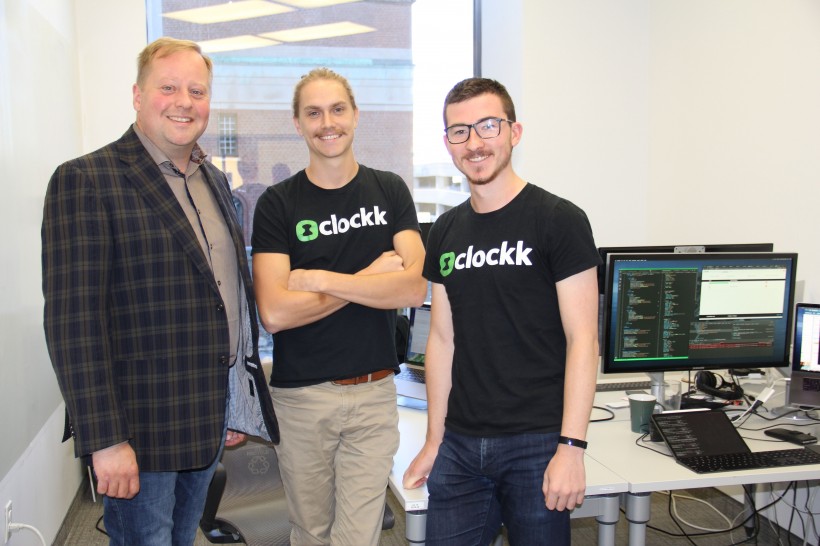Almost two years after winning $25,000 at the first Volta Cohort pitching event, Paul Doerwald has launched his product Clockk, an automated time-tracking app for freelancers and small agencies.
Doerwald not only launched the product Wednesday but also demoed it that night at the DemoCamp at Volta. The product helps freelancers, such as software developers or graphic designers, to keep track of the billable hours they can claim for each project, even if they jump from project to project throughout each day.
In November 2017, Doerwald entered the Volta Cohort pitching competition with an idea for an app that would use machine learning to keep track of billable hours for busy multi-taskers. He ended up one of five winners, each of whom received $25,000 in development capital.
“Winning Volta Cohort was a life-changer,” said Doerwald in an interview Wednesday. “It wasn’t that I wouldn’t have continued to work on Clockk without Cohort, but winning Cohort gave me such encouragement. To be included in the community of Volta founders, as well as getting a bit of money, it gave me the faith that I could do this.”
After the win, Doerwald received guidance from the crew at Volta and reached out to as many freelancers as he could to find out what problems they had with time sheets.
The big problem is that their days are scattershot – working for a few minutes on a project, for example, before answering an email, then remembering to do something for another project. What it means is that it becomes impossible to track how much time has been given to each project and some billable time is eventually lost.
What Clockk does is keep track of all these fragments of time. It uses machine learning to automatically label and assign the work a freelance does. The technology securely and privately tracks the files and web applications the freelancer uses throughout the day and learns which files or apps relate to which project. For example, once the user begins emailing someone for a certain project, each time he or she exchanges an email with that person, Clockk will automatically assign the work and files to that project.
The user has full control over all data collection and can access their data, ensuring complete privacy.
Some clients are now using Clockk, and Doerwald said they’re finding the tool is generating about a half-hour each day of additional billable time for each user. That can work out to about $15,000 to $18,000 of additional revenue for a freelancer in a given year.
Now that the product has launched, Doerwald plans to push it out through such means as freelancers’ meet-ups and social media groups, reaching out to key influencers in these communities. As the product develops and becomes more suitable for larger firms, he expects there will be more sales opportunities at professional conventions and other such gatherings.
So far, the Clockk team includes Doerwald and two full-time developers. Other than the Volta Cohort winnings, he has financed the development of the product with his own money. The plan now is to generate some revenue, and use that momentum to attract outside investors.










